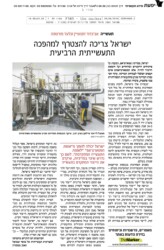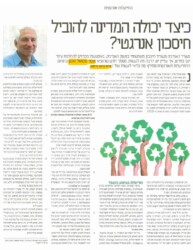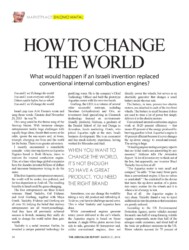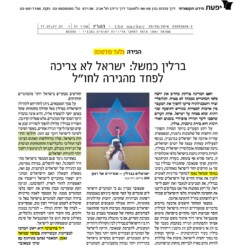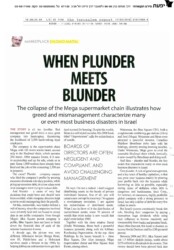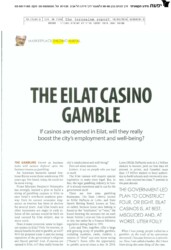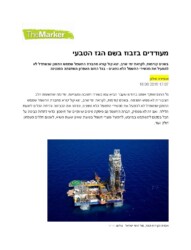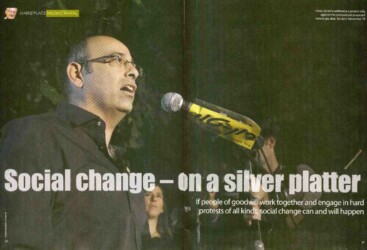Latest Insights
Israel should join the fourth industrial revolution
Advanced manufacturing is the integration of new technologies in order to optimize and improve the processes of using them to manufacturing. Implying these technologies in Israel will enable Israel industry achieve three crucial goals: the upgrading of the traditional industries, extending our new start-ups to manufacture and grow new large knowledge based manufacturing industries and integrate our hi-tech industries towards cooperation in the global growth of advanced manufacturing systems.
Climate change: stop talking, start doing
Israel has recently signed, ceremoniously, the COP21 climate agreement in New York. But what the worth the glamorous pictures if the state of Israel actually does not invest any money in preparing for climate change?
How can the State lead energy saving?
The Ministry of Energy encourages significant savings in the country’s energy economy, by tenders for replacing old equipment with new, but there is still much to do.
A new document issued by the Samuel Neaman Institute in the field of energy efficiency recommends what more should be done.
How to change the world
What would happen if an Israeli invention replaced conventional internal combustion engines?
Berlin as an example: Israel does not need to be afraid from emigration
Following our research on the life and the motivations of Israelis who live in Berlin, we recommend to update the national policy towards the Israelis that choose to immigrate or live abroad for a long period.
When plunder meets blunder
The collapse of the Mega supermarket chain illustrates how greed and mismanagement characterize many or even most business disasters in Israel.
The Eilat Casino Gamble
If casinos are opened in Eilat, will they really boost the city’s employment and well-being
Encouraging waste on behalf of natural gas
In previous years, ahead of heat wave days, the Israel electric company begged we try not to activate the unnecessary electrical appliances – last heat wave the tune has changed. The reasons for this change are listed in the article
Angels Over Tel Aviv
The White City has become one of the world’s most vibrant start-up ecosystems with Angel investments playing an important role.
Social change on a silver platter
If people of goodwill work together and engage in hard protests of all kinds, social change can and will happen.


